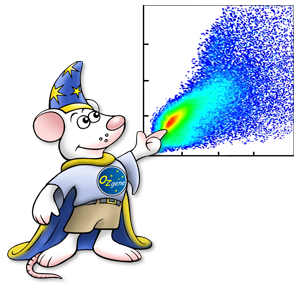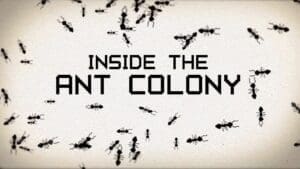Anti-Id matters
Anti-Id matters
In this issue
Feature
Ozgene travel
Latest publications
Frank’s blog
Timeline update
 Anti-Id matters
Anti-Id matters
Anti-idiotope (anti-Id) antibodies play a role in therapy against B cell lymphomas, as inhibitors of pathogenic autoantibodies, and as surrogate antigens for immunisation. Despite these observations, the mechanism by which Id+ immunoglobulin generates anti-Id antibodies is essentially unknown. This is one of the research interests for Prof. Bjarne Bogen at CIR – Centre for Immune Regulation, University of Oslo, Norway.
The Bogen group at CIR studies how dysregulated T – B cell collaboration may cause autoimmune disease and cancer and have projects within tumour immunology. Prof. Bogen also heads the K.G. Jebsen Centre for Research on Influenza Vaccines, which develops novel vaccines, known as Vaccibodies, against cancer and infectious disease including influenza, HIV and tuberculosis.
In a paper published in the Journal of Immunology, the Bogen group uses a novel double targeted BCR mouse model to demonstrate that previously unstimulated (naive) Id-specific B and T cells collaborate efficiently in vivo, even at low frequencies and in the presence of low amounts of Id+ immunoglobulin. This results in germinal centre formation, plasma cell development, and secretion of isotype-switched anti-Id antibodies. The paper also shows that Id-specific T cell–B cell collaboration occurs readily in the absence of adjuvant and is not dependent on Id-presentation by dendritic cells. The results highlight the potency of anti-Id B cells in MHC class II–restricted presentation of Id+ immunoglobulin to T helper cells, thus elucidating the mechanism by which immunization with Id+ immunoglobulin generates anti-Id antibodies. The results further suggest that Id-specific T cell–B cell collaboration is of physiological relevance.
For historical reasons, the network theory as originally formulated by Niels K. Jerne did not include Id-specific T cells. Further, the theory did not consider anti-Id B cells as potent MHCII-presenters of Id-peptide to Id-specific T helper cells. The results presented in the Journal of Immunology paper calls for a revision of the network theory where these new observations are included.
For more information on Prof. Bogen and his research, read the paper in the publications below, or visit the CIR – Centre for Immune Regulation website.
Please find the scientific publication on this study below in the publications section.
For more information on Ozgene mouse models, please see Ozgene services.
 Ozgene travel in February
Ozgene travel in February
- John Dixon, our Principal Scientist in Europe, is visiting Oslo & Bergen between 29 Feb – 2 Mar.
- Dr Frank Koentgen, our CEO, is doing a Lean study tour, followed by client and collaborator visits in the US, Europe, Israel & Singapore between 22 Feb – 14 Mar.
Contact us to arrange a meeting with John or Frank!
Latest publications
FEATURED – J Immunol. 2014 May 1.
Naive idiotope-specific B and T cells collaborate efficiently in the absence of dendritic cells.
Jacobsen J, Haabeth OA, Tveita AA, Schjetne KW, Munthe LA, Bogen B. – Centre for Immune Regulation, Oslo University Hospital, University of Oslo, Oslo, Norway. [read]
Cell Death Differ. 2016 Jan 15.
Enhanced efferocytosis by dendritic cells underlies memory T-cell expansion and susceptibility to autoimmune disease in CD300f-deficient mice.
Tian L1, Choi SC, Lee HN1, Murakami Y1, Qi CF, Sengottuvelu M, Voss O, Krzewski K, Coligan JE. – Receptor Cell Biology Section, Laboratory of Immunogenetics: Pathology Core, Laboratory of Immunogenetics, NIAID, NIH, Rockville, MD, USA. [read]
Elife. 2016 Jan 14.
Rho-associated kinase (ROCK) function is essential for cell cycle progression, senescence and tumorigenesis.
Kümper S, Mardakheh FK, McCarthy A, Yeo M, Stamp GW, Paul A, Worboys J, Sadok A, Jørgensen C, Guichard S, Marshall CJ. – Division of Cancer Biology, Institute of Cancer Research, London: Experimental Pathology Laboratory, Cancer Research UK London Research Institute, London: Cancer Research UK Manchester Institute, Manchester, United Kingdom. [read]
Frank’s blog – Lessons from ants
Have you ever just sat and watched a colony of ants? I have… For being such small creatures, they seriously could move mountains if there were enough of them. If they can organise themselves so efficiently, how come we have such a hard time doing the same?






